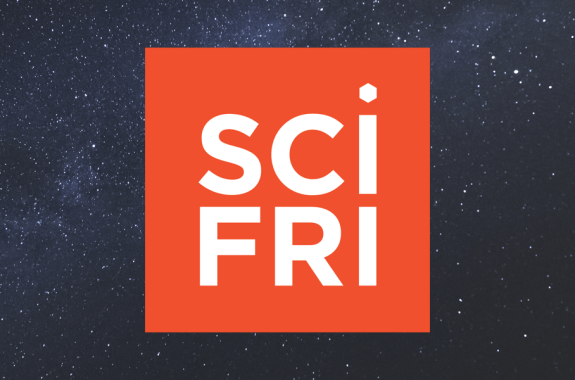May 31, 2024
A science journalist discusses plants’ ability to communicate, store memories, and more in her new book, “The Light Eaters.” Plus, how the eerie calls of the common loons have made their way into pop music. And, the growing field of Indigenous data sovereignty demands that Native communities maintain the right to decide how data about their people are collected, owned, and used.
May 24, 2024
A van outfitted as a mobile laboratory helps scientists study how legal cannabis products affect users—without breaking the law. Plus, after decades of under-development, spending on high-speed rail projects is ramping up in California, Florida, and the Northeast Corridor. And, for the first time, scientists have recorded how salps form chains and swim in corkscrews to reach the ocean’s surface each night.
May 17, 2024
The latest breast cancer screening guidelines move the recommended age to start mammograms from 50 down to 40. How are these decisions made? Plus, early data from the DESI collaboration suggests that dark energy, which powers the universe’s accelerating expansion, may evolve over time. And, scientists are breeding wine grapes that will grow in Iowa’s climate in hopes of expanding the state’s wine industry.
May 10, 2024
Medical researchers are working to better understand—and hopefully mute—tinnitus, a persistent “ringing in the ears.” Plus, in her new book, Dr. Rae Wynn-Grant shares how her lifelong love for the natural world led her to become a nature TV show host. And, the Field Museum has unveiled a new specimen of Archaeopteryx, a species that may hold the key to how ancient dinosaurs became modern birds.
May 3, 2024
Science Friday is live from Ames, Iowa, home to prairies, greater prairie chickens, and an array of wildlife. Plus, the co-emergence of two periodical cicada broods is underway. Scientists have tips for how to experience the event. And, as the “Universe of Art” podcast turns one, listeners discuss solar music boxes and what it’s like making art with Chronic Fatigue Syndrome.
April 26, 2024
For her new book, Aarathi Prasad spent years researching the past and future of silk—and even grew her own silkworms. Plus, an array of new products monitors users’ brain waves using caps or headbands. That neural data has few privacy protections. And, bonobo males may not live up to their reputation as calmer, more peaceful great apes.
April 19, 2024
Superfund sites contain extreme pollution. Flooding—made worse by climate change—could carry their toxic contaminants into surrounding areas. Plus, researchers in Buenos Aires have figured out a way to tap into bird dreams. And, a citizen science project aims to sample the waters of hundreds of lakes worldwide for environmental DNA.
April 12, 2024
Varroa destructor mites are killing honeybees at an alarming rate. We’ll go inside the race to stop these parasites. Plus, meet the subnivium, a layer between snowpack and soil where some spiders, beetles, and centipedes spend the winter. And, enjoy the spectacular display of science during a baseball game—from physics to biomechanics.
April 5, 2024
On April 8, a total solar eclipse will plunge parts of North America into darkness. Scientists answer the questions you asked. Plus, satellite technology—and community outreach—can help harness trees’ cooling power for city residents. And, a Massachusetts man who received a kidney from a genetically modified pig is recovering well.
March 29, 2024
After a controversial Alzheimer’s medication was discontinued, a new anti-amyloid drug receives extra scrutiny from the FDA. Plus, a new analysis finds that more viruses spread from humans to animals than from animals to humans. And, the science advisor for the Netflix adaptation of “The 3 Body Problem” breaks down the physics in the show.
